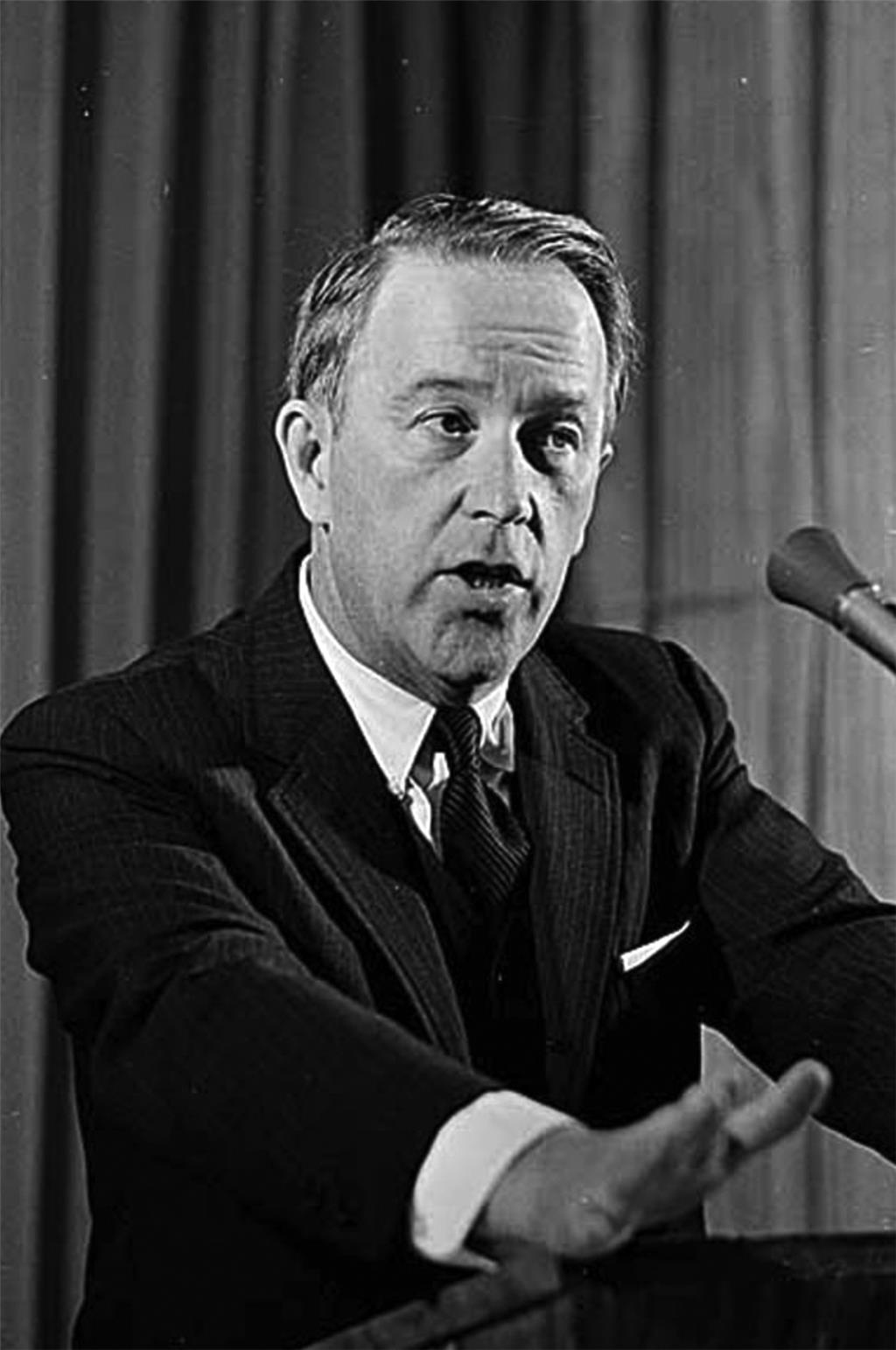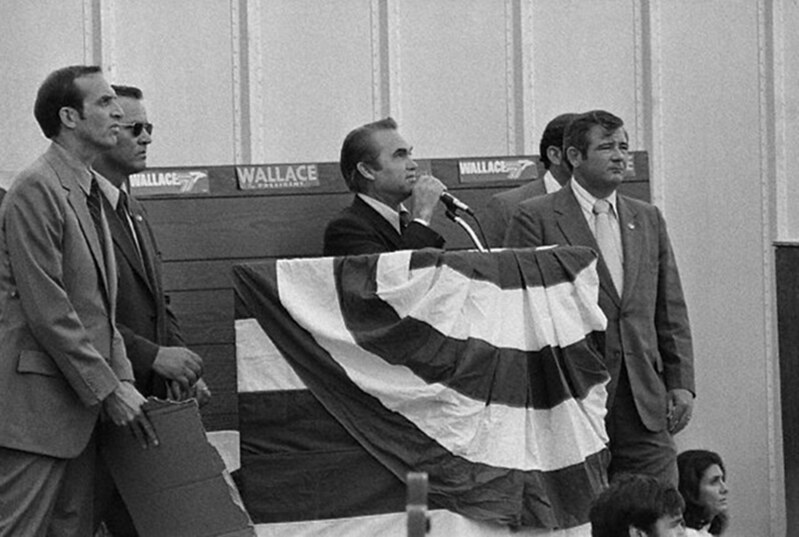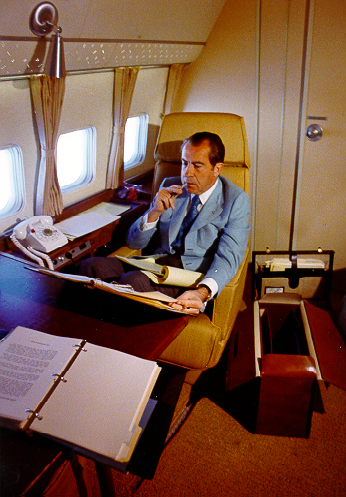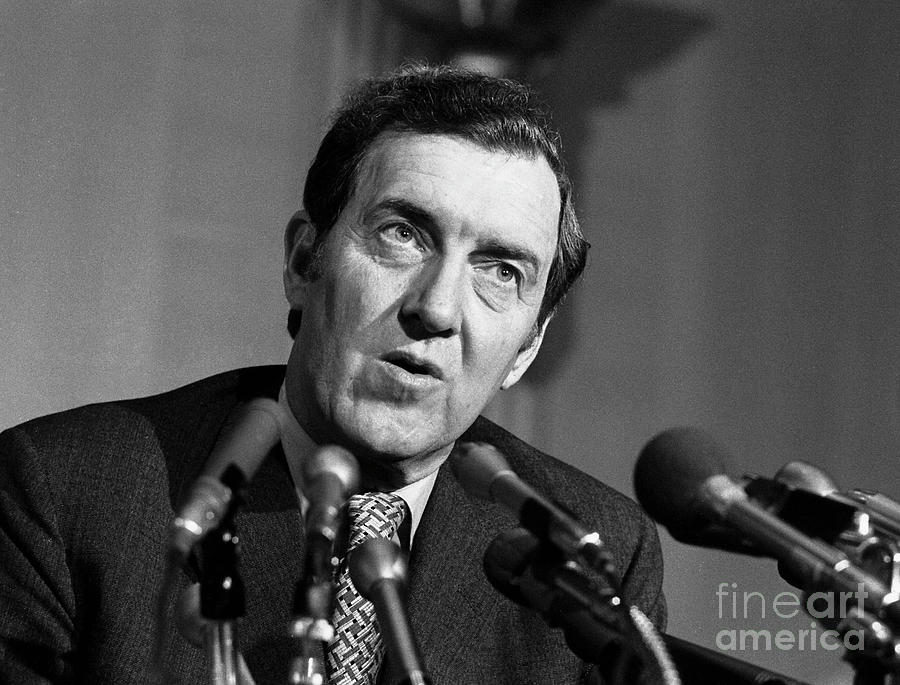Chapter 7: July 1971.
Thursday, July 1st, 1971: Ohio’s legislature ratifies the 26th amendment to the constitution, giving it the necessary majority of states needed for ratification. The White House confirms the President will certify the amendment in the coming days. The 26th amendment, upon formal certification, will go into effect immediately. The amendment’s provisions set the voting age at 18, lowering it from 21.
Friday, July 2nd, 1971: Romanian leader Nicolae Ceausescu issues the “July Theses” in a speech before the Central Committee of the Romanian Communist Party. The speech calls for a cultural revolution in Romania, in which all art, architecture, and culture was to be reshaped to propagate the values of the ruling party. Perhaps the most independent minded of the Eastern Bloc leaders, Ceausescu’s desire to embrace what he calls “national communism” was inspired by his tour of China and North Korea, where he met personally with Mao Zedong and Kim Ill Sung respectively. Impressed by the pervasive personality cults established under these regimes, Ceausescu uses the July Theses to establish one of his own.
Saturday, July 3rd, 1971: Jim Morrison, lead singer of the rock group The Doors, is found dead in Paris at the age of 27. His death is later ruled to be the result of an accidental overdose on an “eight ball” that contained heroin and cocaine, amongst other substances.
Monday, July 5th, 1971: President Nixon certifies the 26th amendment to the constitution at a ceremony at Philadelphia’s Independence Hall, which results in the voting age being reduced to 18. The President is hopeful that his decision to support efforts to lower the voting age will be appreciated by young voters as his reelection campaign looms in the foreground.
Tuesday, July 6th, 1971: Legendary jazz musician Louis Armstrong dies at the age of 69 in New York, hours after completing a concert at the Waldorf-Astoria. An autopsy later reveals that Armstrong had died suddenly from a heart attack while alone in his hotel room.
Wednesday, July 7th, 1971: Hastings Kamazu Banda is declared President-for-Life of Malawi by the country’s parliament; unlike most leaders in Africa, Banda is one of the few outwardly pro-western leaders and has been controversial amongst his peers for his willingness to engage diplomatically with the apartheid regimes in Rhodesia and South Africa.
Thursday, July 8th, 1971: While on a fact-finding tour of the Middle East, National Security Adviser Henry Kissinger falls ill and reportedly has taken refuge at a remote mountain resort near the country’s capital. In reality, this is only a cover story for his actual mission. After arriving in Pakistan, Kissinger was in reality shuttled by private jet from Islamabad to Peking, where he is hosted for three days by Chinese Premier Zhou Enlai for top-secret high-level negotiations.
Friday, July 9th, 1971: Louisiana Governor John McKeithen travels to New Hampshire, where he finds a rather cold reception. After appearing at three sparsely attended events, the McKeithen campaign determines that the best way forward is to pull all resources from the state and focus on other early primary states such as Florida.
Saturday, July 10th, 1971: National Security Adviser Henry Kissinger quietly returns to Washington from Peking, with journalists and the public entirely in the dark about the real nature of his three-day disappearance from public view.
In Morocco, soldiers inspired by Libyan leader Muammar Qaddafi launch an abortive coup against King Hassan II, storming the palace during his birthday party in a violent attack on the royal family. The army manages to put down the coup attempt, with a number of top-ranking generals and officers being detained on suspicion of involvement in the plot.
 “The situation in…um…Red China” said Kissinger, who looked directly at Vice President Agnew when he used the latter two words, “is stabilizing. The influence of Lin Biao has seemed to pacify Madame Mao’s most destructive instincts.” Gathered around him in his West Wing office was a small cabal of White House Staffers, all of whom were keen on getting the details from the man himself about his secretive summit with the Chinese Premier. Present were Vice President Agnew, who despite being the #2 to the President was as out of the loop as everyone else, speechwriter Patrick Buchanan, Deputy National Security Adviser Al Haig, and presidential adviser John Ehrlichman. Chief of Staff Haldeman was out of the office, enjoying the morning with his family. So was the President, who was tucked away at Camp David with his wife, daughters, and sons-in-laws.
“The situation in…um…Red China” said Kissinger, who looked directly at Vice President Agnew when he used the latter two words, “is stabilizing. The influence of Lin Biao has seemed to pacify Madame Mao’s most destructive instincts.” Gathered around him in his West Wing office was a small cabal of White House Staffers, all of whom were keen on getting the details from the man himself about his secretive summit with the Chinese Premier. Present were Vice President Agnew, who despite being the #2 to the President was as out of the loop as everyone else, speechwriter Patrick Buchanan, Deputy National Security Adviser Al Haig, and presidential adviser John Ehrlichman. Chief of Staff Haldeman was out of the office, enjoying the morning with his family. So was the President, who was tucked away at Camp David with his wife, daughters, and sons-in-laws.
“The influence of Lin Biao over the army is critical” continued Kissinger, “it is a moderating force that has kept the frenzied masses at bay several times. But while Lin offers stability, he does not offer an opportunity.”
“Why is that?” asked Haig.
“He is an orthodox Maoist, one committed to the cause of the Chinese revolution and the proliferation of global communism. And he is ruthlessly competent in a way that even the Chairman envies.”
“Did you meet him or encounter him at all?” asked Buchanan.
“No, only Zhou. Neither Lin nor Mao were present, and I never entertained any expectation of meeting either…not on this trip, at least.”
“You’ve been invited back?” asked Ehrlichman, perplexed.
“Yes” answered Kissinger, “in October. But there’s more than that.”
“There is?” asked a confused Haig, who was only seeing his superior for the first time since Kissinger’s return to Washington only a few hours before.
“They invited me back in October to further discuss the possibility of establishing diplomatic relations.”
The room fell silent for a second as the staffers took in this historic news; only Buchanan, the West Wing’s most arch anti-communist, spoke up.
“How are you even talking to the Reds at all?” asked Pat, perplexed by the
“The Ping Pong team” answered Kissinger, who continued “it was through them, God knows why, that the Chairman chose to open the lines of communication.”
“So you’ll be going to China in October?” asked Pat once again, still trying to make sense of the stunning revelation from Kissinger.
“Yes, I will be returning to Peking then” continued Kissinger, “but I won’t be the only one going to China.”
There was a stunned pause for a moment as the others took in the historic nature of what they knew Kissinger would be saying next.
“The President has been extended, and has accepted, an invitation from the Chairman himself to visit the People’s Republic of China.”
“This October?” inquired Haig. “No” Kissinger replied, “the details of such a momentous state visit will need to be worked out. It will likely not take place until 1972.”
“When will this be announced?” asked Ehrlichman. Haldeman signaled his interest in his counterpart’s question.
“Next week”Kissinger answered confidently, even though the President himself had not yet decided on how to convey such monumental news to the public.
Monday, July 12th, 1971: Two days after a violent coup attempt against King Hassan II failed, the government of Morocco severs diplomatic relations with the Libyan Arab Republic after accusing Libyan leader Muammar Qaddafi of sponsoring the coup attempt.
Tuesday, July 13th, 1971: The Jordanian army is deployed to several Palestinian refugee camps in order to root out various Palestinian militias that have been growing on Jordanian soil in recent months. The decision of King Hussein to deploy the military against the Palestinian factions leads to Islamists in the country accusing the King of being too cozy towards western interests.
Wednesday, July 14th, 1971: Members of the Irish Republican Army kill a British soldier in the Andersontown district of Belfast. It is the latest fatal attack on the British military in this violence plagued corner of the United Kingdom.
Thursday, July 15th, 1971: President Nixon stuns the world when he announces in a televised speech from the Oval Office that he has accepted an invitation from Zhou Enlai to visit the People’s Republic of China.
Friday, July 16th, 1971: Senator Hubert Humphrey (D-MN) tells the Minneapolis Tribune that he has “no active plan” to enter the Democratic presidential primaries, but also affirms that he would accept the presidential nomination of the party should he be drafted into the race at the convention. Humphrey also states that he is “pleased by his prospects” should he hypothetically enter the primary race, a statement which effectively gives his supporters the go-ahead to continue with their draft efforts.
Sunday, July 18th, 1971: The Trucial States, a collection of six Arab Sheikhdoms on the coast of the Persian Gulf, is formed after the British military withdraws from the oil rich region. The six respective Sheikhs, who were effectively the rulers of a string of small British protectorates, begin negotiating amongst themselves to form what will later become the United Arab Emirates.
Monday, July 19th, 1971: Major Hashem al-Atta leads an attempted coup in Sudan with other leftist aligned military officers against the regime of military dictator Jaafar Nimeiry; the coup crumbles after briefly seizing the presidential palace in Khartoum and al-Atta is quickly captured and executed by forces loyal to Nimeiry.
Wednesday, July 21st, 1971: New York’s Republican Mayor John Lindsey criticizes President Nixon in a lengthy op-ed published by the New York Times, in which he lambasts the administration for “betraying the confidence of millions of progressive Republicans” and called for the party to return to it’s “Roosevelt roots.”
Friday, July 23rd, 1971: Jorge Pacheco Areco is impeached by the Uruguayan legislature for suppressing the civil liberties of citizens following an upsurge in militant leftist activity in the country earlier in the year.
Saturday, July 24th, 1971: The New York Times runs a piece entitled “Can a Negro Woman be President?” authored by Congresswoman Shirley Chisholm. While the New York Congresswoman denies interest in running for President herself despite a growing draft movement, the Congresswoman none the less calls on the United States government to “resemble and not only just represent the collective masses.”
Sunday, July 25th, 1971: The Al-Badr brigade, a paramilitary death squad of East Pakistani Muslims who oppose the independence of Bangladesh, murder 150 men in a brutal massacre in the village of Shohaghpur, before sexually abusing their widows in a display of graphic brutality which shocks the western world. Bengali liberation fighters vow to avenge their fallen comrades, praising them as martyrs and calling for increased public resistance to the West Pakistani regime’s ongoing implementation of martial law.
Monday, July 26th, 1971: Apollo 15 is launched from Cape Canaveral, Florida. It is the latest manned mission to the moon launched by the United States.
Tuesday, July 27th, 1971: President Nixon presents former First Lady Mamie Eisenhower with the first minted Eisenhower dollar coin at a White House ceremony. The coin, which was minted in honor of the late 34th President, was commissioned after Eisenhower’s death in 1969.
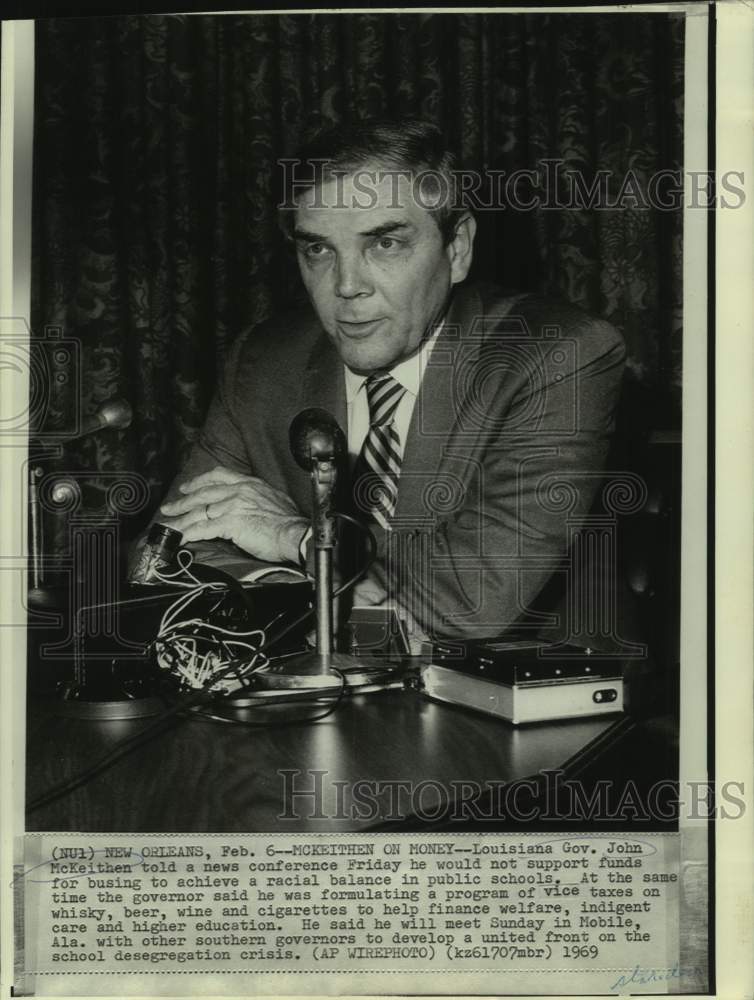 Running for President was hard work, but fortunately for J.J. McKeithen, his appeal of “won’t ‘ya help me?” seemed to be paying off. Checks big and small had been pouring into his hastily organized campaign’s headquarters in Baton Rouge, and the folksy Louisiana Governor had been the talk of the town up in Washington after announcing his presidential campaign during a live television interview. The second candidate after McGovern to enter the race, McKeithen shared the same playbook as the insurgent prairie progressive who had so dramatically altered the internal dynamics of Democratic presidential politics. He had chosen to avoid the first in the nation primary in New Hampshire, due to the unfamiliar territory and close proximity to neighboring Maine, where the newest frontrunner, Senator Muskie dominated. It would prove to be a smart decision; by avoiding the crowded field in the Granite State, McKeithen was free to campaign vigorously in Florida. Only Governor Wallace and Senator Jackson seemed to have any significant support in the state, and the liberal Governor Reuben Askew – perhaps wanting to weaken Wallace’s grip on the Florida Democratic electorate – even invited his Louisianan counterpart to meet with him at the Governor’s mansion in Tallahassee the day before.
Running for President was hard work, but fortunately for J.J. McKeithen, his appeal of “won’t ‘ya help me?” seemed to be paying off. Checks big and small had been pouring into his hastily organized campaign’s headquarters in Baton Rouge, and the folksy Louisiana Governor had been the talk of the town up in Washington after announcing his presidential campaign during a live television interview. The second candidate after McGovern to enter the race, McKeithen shared the same playbook as the insurgent prairie progressive who had so dramatically altered the internal dynamics of Democratic presidential politics. He had chosen to avoid the first in the nation primary in New Hampshire, due to the unfamiliar territory and close proximity to neighboring Maine, where the newest frontrunner, Senator Muskie dominated. It would prove to be a smart decision; by avoiding the crowded field in the Granite State, McKeithen was free to campaign vigorously in Florida. Only Governor Wallace and Senator Jackson seemed to have any significant support in the state, and the liberal Governor Reuben Askew – perhaps wanting to weaken Wallace’s grip on the Florida Democratic electorate – even invited his Louisianan counterpart to meet with him at the Governor’s mansion in Tallahassee the day before.
But now the pulls of politics had dragged him to Jacksonville, where he was due to address a large gathering of local Democrats. The only prospective presidential contender to accept their invitation, McKeithen was greeted by an integrated (if still mostly white) crowd of voters who were as curious as anyone else to see the latest rising star within the Democratic field. Already polling just shy of ten percent, McKeithen was gaining momentum, and the size of the crowd ensured that the talk about the Louisiana Governor’s rise would be taken more seriously than just a couple of good polls. With the precision of a surgeon, he refined his stump speech. After a brief introduction by Congressman Charles Bennett, who had already endorsed his candidacy (the first Congressman outside of the Louisiana delegation to do so) it was McKeithen’s turn to step up to the microphone.
“I’m John McKeithen, governor of Louisiana, and you don’t know me from Adam. So, you ask, why should I listen to this fella rant about running for President? Well, friends, I may not be from Jacksonville, but I’m a father who loves his family; I’ve worked hard for all I have, my parents were working folk, just like you. I’m a veteran, I love my country and I’m concerned about the future. That’s why I’m in this race. As governor of Louisiana I did three things; I brought jobs, I improved education and I invited blacks to join us in creating a better state for everyone. I want to bring honesty and hard working values back into the government of the United States. To borrow an old riverboat expression, I want to cut the cards before that Washington crowd deals the next hand. As a hard-working father I want to say my peace about how this country should be going, and what’s gone wrong under Mr. Nixon, and why the lefties aren’t doing much better. I want to leave our country a better place for all of our children. I’m running for President. Won’t you he’p me?”
In a few short sentences, McKeithen had summed up his candidacy in a way that Muskie, Humphrey, McGovern, or Jackson could never dream of. Even the outspoken Alabaman George Wallace, who had a way with words, couldn’t so succinctly sum up the qualifications of his candidacy in such a laymen manner. Of course, there was more to speech – a handful of paragraphs more – which he quickly ran through, but the point had already been made. McKeithen was a bread-and-butter outsider, neither a racial demagogue nor a darling of the New Left, one with cross regional appeal who could challenge Nixon’s stranglehold on the so called “silent majority” by sidelining the looming question of Vietnam to focus on a platform centered around kitchen table issues. As McKeithen finished his address to the gathered crowds, he stepped off stage to an awaiting journalist, who was quick to thrust a tape recorder into his face. He identified himself and his paper, the Jacksonville something, but the noise of the throngs of people gathering around him to shake his hand and perhaps get a picture drowned out most of what he said. The Governor’s son “Fox” McKeithen, a young man of 24 years, stepped in front of the Governor, shielding him briefly while he talked to the journalist.
“Why are you entering the Democratic presidential primaries?” asked the reporter.
“Well, the way I see it” began McKeithen, “if I don’t do it, someone else will. But that someone else might not win. Because that someone else might not be focused on what matters most to the American people.”
“But very few Americans, outside of Louisiana, are aware of your record as Governor and your various accomplishments in office. How do you plan on breaking out in a potentially crowded field?”
“I’m a Governor who improved racial relations in a Jim Crow state. I’m a Governor who built more schools than he did jails. I’m a Governor who made Louisiana a top destination for anyone seeking a good job. In a few years, I’ll be able to brag that I’m the Governor who built the Superdome. Notice a theme here? I’m not a Washington insider who is all talk and no action. I’ve served in an executive role, and I kept all the promises I made.”
“Since announcing your candidacy on national television last month, there has been a surge of interest in your campaign and your vision for the Democratic Party and for America at-large. But there recently have been allegations of your involvement in the cycle of corruption that seems to define Louisiana politics. Do you have any comment on allegations of pay to play cronyism involving associates and members of your administration?”
“I ain’t got nothing to hide” said McKeithen confidently, “now, if you excuse me, I ‘got some ‘meetin and some ‘greetin to do.”
Friday, July 30th, 1971: All Nippon Airways Flight 58 crashes after colliding with a Japanese air force fighter jet, resulting in all 165 passengers being killed. It is the worst recorded civil aviation disaster in history at that point in time.
Saturday, July 31st, 1971: Apollo 15 successfully lands on the moon, with astronaut David Scott being the first of this mission’s crew to step on to the lunar surface.
Gallup releases new polling ahead of the 1972 election.
Gallup: 1,000 Registered Voters (Nationwide).
(R) Richard Nixon: 43%
(D) Generic Democrat: 41%
Undecided: 13%
Independent/Other: 3%
Gallup: 1,000 Democratic Voters (Nationwide).
Edmund Muskie: 22%
Hubert Humphrey: 20%
George Wallace: 16%
George McGovern: 15%
John McKeithen: 7%
John Lindsey: 7%
Birch Bayh: 5%
Shirley Chisholm: 3%
Henry Jackson: 2%
Eugene McCarthy: 1%
Harold Hughes: 1%
Vance Hartke: 1%
Friday, July 2nd, 1971: Romanian leader Nicolae Ceausescu issues the “July Theses” in a speech before the Central Committee of the Romanian Communist Party. The speech calls for a cultural revolution in Romania, in which all art, architecture, and culture was to be reshaped to propagate the values of the ruling party. Perhaps the most independent minded of the Eastern Bloc leaders, Ceausescu’s desire to embrace what he calls “national communism” was inspired by his tour of China and North Korea, where he met personally with Mao Zedong and Kim Ill Sung respectively. Impressed by the pervasive personality cults established under these regimes, Ceausescu uses the July Theses to establish one of his own.
Saturday, July 3rd, 1971: Jim Morrison, lead singer of the rock group The Doors, is found dead in Paris at the age of 27. His death is later ruled to be the result of an accidental overdose on an “eight ball” that contained heroin and cocaine, amongst other substances.
Monday, July 5th, 1971: President Nixon certifies the 26th amendment to the constitution at a ceremony at Philadelphia’s Independence Hall, which results in the voting age being reduced to 18. The President is hopeful that his decision to support efforts to lower the voting age will be appreciated by young voters as his reelection campaign looms in the foreground.
Tuesday, July 6th, 1971: Legendary jazz musician Louis Armstrong dies at the age of 69 in New York, hours after completing a concert at the Waldorf-Astoria. An autopsy later reveals that Armstrong had died suddenly from a heart attack while alone in his hotel room.
Wednesday, July 7th, 1971: Hastings Kamazu Banda is declared President-for-Life of Malawi by the country’s parliament; unlike most leaders in Africa, Banda is one of the few outwardly pro-western leaders and has been controversial amongst his peers for his willingness to engage diplomatically with the apartheid regimes in Rhodesia and South Africa.
Thursday, July 8th, 1971: While on a fact-finding tour of the Middle East, National Security Adviser Henry Kissinger falls ill and reportedly has taken refuge at a remote mountain resort near the country’s capital. In reality, this is only a cover story for his actual mission. After arriving in Pakistan, Kissinger was in reality shuttled by private jet from Islamabad to Peking, where he is hosted for three days by Chinese Premier Zhou Enlai for top-secret high-level negotiations.
Friday, July 9th, 1971: Louisiana Governor John McKeithen travels to New Hampshire, where he finds a rather cold reception. After appearing at three sparsely attended events, the McKeithen campaign determines that the best way forward is to pull all resources from the state and focus on other early primary states such as Florida.
Saturday, July 10th, 1971: National Security Adviser Henry Kissinger quietly returns to Washington from Peking, with journalists and the public entirely in the dark about the real nature of his three-day disappearance from public view.
In Morocco, soldiers inspired by Libyan leader Muammar Qaddafi launch an abortive coup against King Hassan II, storming the palace during his birthday party in a violent attack on the royal family. The army manages to put down the coup attempt, with a number of top-ranking generals and officers being detained on suspicion of involvement in the plot.
Henry Kissinger.
Sunday, July 11th, 1971:
Washington, D.C.
The White House.
10:33 A.M.
Sunday, July 11th, 1971:
Washington, D.C.
The White House.
10:33 A.M.
“The influence of Lin Biao over the army is critical” continued Kissinger, “it is a moderating force that has kept the frenzied masses at bay several times. But while Lin offers stability, he does not offer an opportunity.”
“Why is that?” asked Haig.
“He is an orthodox Maoist, one committed to the cause of the Chinese revolution and the proliferation of global communism. And he is ruthlessly competent in a way that even the Chairman envies.”
“Did you meet him or encounter him at all?” asked Buchanan.
“No, only Zhou. Neither Lin nor Mao were present, and I never entertained any expectation of meeting either…not on this trip, at least.”
“You’ve been invited back?” asked Ehrlichman, perplexed.
“Yes” answered Kissinger, “in October. But there’s more than that.”
“There is?” asked a confused Haig, who was only seeing his superior for the first time since Kissinger’s return to Washington only a few hours before.
“They invited me back in October to further discuss the possibility of establishing diplomatic relations.”
The room fell silent for a second as the staffers took in this historic news; only Buchanan, the West Wing’s most arch anti-communist, spoke up.
“How are you even talking to the Reds at all?” asked Pat, perplexed by the
“The Ping Pong team” answered Kissinger, who continued “it was through them, God knows why, that the Chairman chose to open the lines of communication.”
“So you’ll be going to China in October?” asked Pat once again, still trying to make sense of the stunning revelation from Kissinger.
“Yes, I will be returning to Peking then” continued Kissinger, “but I won’t be the only one going to China.”
There was a stunned pause for a moment as the others took in the historic nature of what they knew Kissinger would be saying next.
“The President has been extended, and has accepted, an invitation from the Chairman himself to visit the People’s Republic of China.”
“This October?” inquired Haig. “No” Kissinger replied, “the details of such a momentous state visit will need to be worked out. It will likely not take place until 1972.”
“When will this be announced?” asked Ehrlichman. Haldeman signaled his interest in his counterpart’s question.
“Next week”Kissinger answered confidently, even though the President himself had not yet decided on how to convey such monumental news to the public.
Monday, July 12th, 1971: Two days after a violent coup attempt against King Hassan II failed, the government of Morocco severs diplomatic relations with the Libyan Arab Republic after accusing Libyan leader Muammar Qaddafi of sponsoring the coup attempt.
Tuesday, July 13th, 1971: The Jordanian army is deployed to several Palestinian refugee camps in order to root out various Palestinian militias that have been growing on Jordanian soil in recent months. The decision of King Hussein to deploy the military against the Palestinian factions leads to Islamists in the country accusing the King of being too cozy towards western interests.
Wednesday, July 14th, 1971: Members of the Irish Republican Army kill a British soldier in the Andersontown district of Belfast. It is the latest fatal attack on the British military in this violence plagued corner of the United Kingdom.
Thursday, July 15th, 1971: President Nixon stuns the world when he announces in a televised speech from the Oval Office that he has accepted an invitation from Zhou Enlai to visit the People’s Republic of China.
Friday, July 16th, 1971: Senator Hubert Humphrey (D-MN) tells the Minneapolis Tribune that he has “no active plan” to enter the Democratic presidential primaries, but also affirms that he would accept the presidential nomination of the party should he be drafted into the race at the convention. Humphrey also states that he is “pleased by his prospects” should he hypothetically enter the primary race, a statement which effectively gives his supporters the go-ahead to continue with their draft efforts.
Sunday, July 18th, 1971: The Trucial States, a collection of six Arab Sheikhdoms on the coast of the Persian Gulf, is formed after the British military withdraws from the oil rich region. The six respective Sheikhs, who were effectively the rulers of a string of small British protectorates, begin negotiating amongst themselves to form what will later become the United Arab Emirates.
Monday, July 19th, 1971: Major Hashem al-Atta leads an attempted coup in Sudan with other leftist aligned military officers against the regime of military dictator Jaafar Nimeiry; the coup crumbles after briefly seizing the presidential palace in Khartoum and al-Atta is quickly captured and executed by forces loyal to Nimeiry.
Wednesday, July 21st, 1971: New York’s Republican Mayor John Lindsey criticizes President Nixon in a lengthy op-ed published by the New York Times, in which he lambasts the administration for “betraying the confidence of millions of progressive Republicans” and called for the party to return to it’s “Roosevelt roots.”
Friday, July 23rd, 1971: Jorge Pacheco Areco is impeached by the Uruguayan legislature for suppressing the civil liberties of citizens following an upsurge in militant leftist activity in the country earlier in the year.
Saturday, July 24th, 1971: The New York Times runs a piece entitled “Can a Negro Woman be President?” authored by Congresswoman Shirley Chisholm. While the New York Congresswoman denies interest in running for President herself despite a growing draft movement, the Congresswoman none the less calls on the United States government to “resemble and not only just represent the collective masses.”
Sunday, July 25th, 1971: The Al-Badr brigade, a paramilitary death squad of East Pakistani Muslims who oppose the independence of Bangladesh, murder 150 men in a brutal massacre in the village of Shohaghpur, before sexually abusing their widows in a display of graphic brutality which shocks the western world. Bengali liberation fighters vow to avenge their fallen comrades, praising them as martyrs and calling for increased public resistance to the West Pakistani regime’s ongoing implementation of martial law.
Monday, July 26th, 1971: Apollo 15 is launched from Cape Canaveral, Florida. It is the latest manned mission to the moon launched by the United States.
Tuesday, July 27th, 1971: President Nixon presents former First Lady Mamie Eisenhower with the first minted Eisenhower dollar coin at a White House ceremony. The coin, which was minted in honor of the late 34th President, was commissioned after Eisenhower’s death in 1969.
John McKeithen.
Wednesday, July 28th, 1971:
Jacksonville, FL.
2:25 P.M.
Wednesday, July 28th, 1971:
Jacksonville, FL.
2:25 P.M.

But now the pulls of politics had dragged him to Jacksonville, where he was due to address a large gathering of local Democrats. The only prospective presidential contender to accept their invitation, McKeithen was greeted by an integrated (if still mostly white) crowd of voters who were as curious as anyone else to see the latest rising star within the Democratic field. Already polling just shy of ten percent, McKeithen was gaining momentum, and the size of the crowd ensured that the talk about the Louisiana Governor’s rise would be taken more seriously than just a couple of good polls. With the precision of a surgeon, he refined his stump speech. After a brief introduction by Congressman Charles Bennett, who had already endorsed his candidacy (the first Congressman outside of the Louisiana delegation to do so) it was McKeithen’s turn to step up to the microphone.
“I’m John McKeithen, governor of Louisiana, and you don’t know me from Adam. So, you ask, why should I listen to this fella rant about running for President? Well, friends, I may not be from Jacksonville, but I’m a father who loves his family; I’ve worked hard for all I have, my parents were working folk, just like you. I’m a veteran, I love my country and I’m concerned about the future. That’s why I’m in this race. As governor of Louisiana I did three things; I brought jobs, I improved education and I invited blacks to join us in creating a better state for everyone. I want to bring honesty and hard working values back into the government of the United States. To borrow an old riverboat expression, I want to cut the cards before that Washington crowd deals the next hand. As a hard-working father I want to say my peace about how this country should be going, and what’s gone wrong under Mr. Nixon, and why the lefties aren’t doing much better. I want to leave our country a better place for all of our children. I’m running for President. Won’t you he’p me?”
In a few short sentences, McKeithen had summed up his candidacy in a way that Muskie, Humphrey, McGovern, or Jackson could never dream of. Even the outspoken Alabaman George Wallace, who had a way with words, couldn’t so succinctly sum up the qualifications of his candidacy in such a laymen manner. Of course, there was more to speech – a handful of paragraphs more – which he quickly ran through, but the point had already been made. McKeithen was a bread-and-butter outsider, neither a racial demagogue nor a darling of the New Left, one with cross regional appeal who could challenge Nixon’s stranglehold on the so called “silent majority” by sidelining the looming question of Vietnam to focus on a platform centered around kitchen table issues. As McKeithen finished his address to the gathered crowds, he stepped off stage to an awaiting journalist, who was quick to thrust a tape recorder into his face. He identified himself and his paper, the Jacksonville something, but the noise of the throngs of people gathering around him to shake his hand and perhaps get a picture drowned out most of what he said. The Governor’s son “Fox” McKeithen, a young man of 24 years, stepped in front of the Governor, shielding him briefly while he talked to the journalist.
“Why are you entering the Democratic presidential primaries?” asked the reporter.
“Well, the way I see it” began McKeithen, “if I don’t do it, someone else will. But that someone else might not win. Because that someone else might not be focused on what matters most to the American people.”
“But very few Americans, outside of Louisiana, are aware of your record as Governor and your various accomplishments in office. How do you plan on breaking out in a potentially crowded field?”
“I’m a Governor who improved racial relations in a Jim Crow state. I’m a Governor who built more schools than he did jails. I’m a Governor who made Louisiana a top destination for anyone seeking a good job. In a few years, I’ll be able to brag that I’m the Governor who built the Superdome. Notice a theme here? I’m not a Washington insider who is all talk and no action. I’ve served in an executive role, and I kept all the promises I made.”
“Since announcing your candidacy on national television last month, there has been a surge of interest in your campaign and your vision for the Democratic Party and for America at-large. But there recently have been allegations of your involvement in the cycle of corruption that seems to define Louisiana politics. Do you have any comment on allegations of pay to play cronyism involving associates and members of your administration?”
“I ain’t got nothing to hide” said McKeithen confidently, “now, if you excuse me, I ‘got some ‘meetin and some ‘greetin to do.”
Friday, July 30th, 1971: All Nippon Airways Flight 58 crashes after colliding with a Japanese air force fighter jet, resulting in all 165 passengers being killed. It is the worst recorded civil aviation disaster in history at that point in time.
Saturday, July 31st, 1971: Apollo 15 successfully lands on the moon, with astronaut David Scott being the first of this mission’s crew to step on to the lunar surface.
Gallup releases new polling ahead of the 1972 election.
Gallup: 1,000 Registered Voters (Nationwide).
(R) Richard Nixon: 43%
(D) Generic Democrat: 41%
Undecided: 13%
Independent/Other: 3%
Gallup: 1,000 Democratic Voters (Nationwide).
Edmund Muskie: 22%
Hubert Humphrey: 20%
George Wallace: 16%
George McGovern: 15%
John McKeithen: 7%
John Lindsey: 7%
Birch Bayh: 5%
Shirley Chisholm: 3%
Henry Jackson: 2%
Eugene McCarthy: 1%
Harold Hughes: 1%
Vance Hartke: 1%
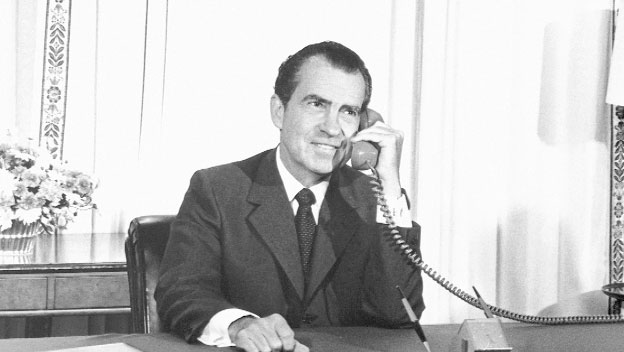

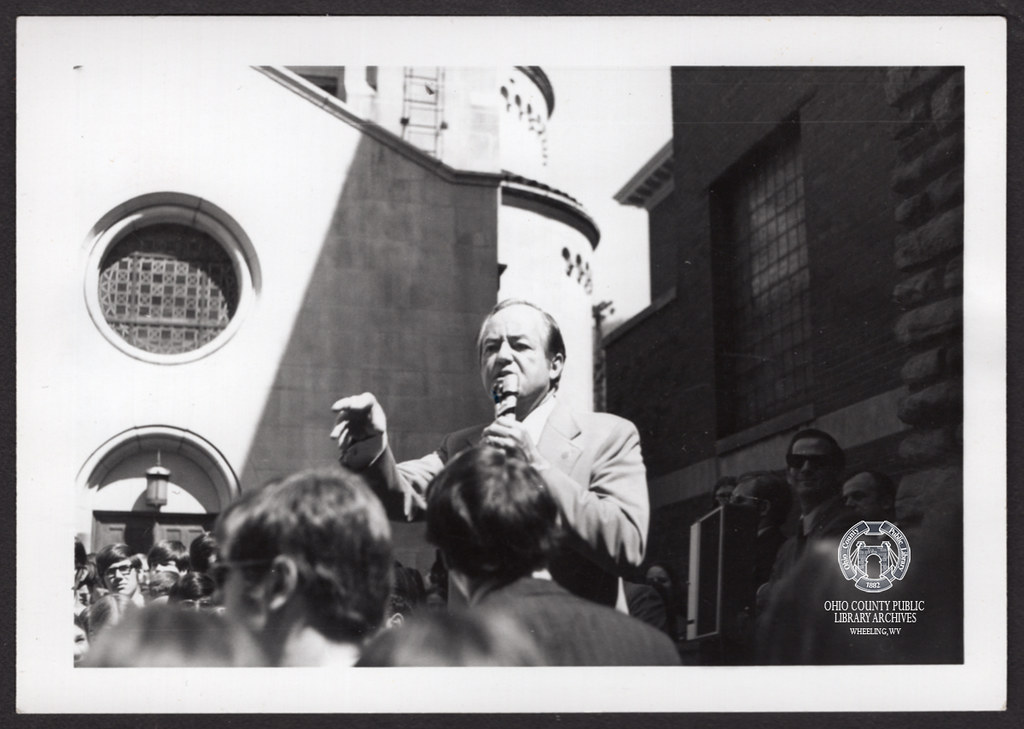
:format(jpeg)/cdn.vox-cdn.com/uploads/chorus_image/image/46788580/e-65-12-xl__1_.0.0.jpg)
